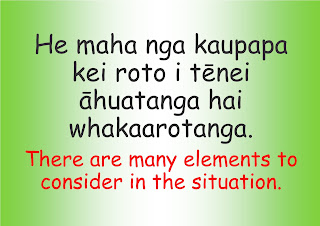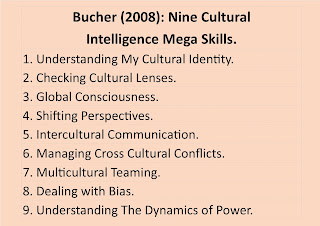THE INFLUENCE OF LAW AND ETHICS.
On my CV, a section reads; At all times the attitudes and values that I display are reflective of my upbringing and as a professional in the community. I would never close my eyes to basic moral principles. I still use this as my ‘guide’. Nowadays I have to give deeper thought to ethical decisions as they now bring many differing challenges as we move forward in this digital ‘minefield’ world.
Hall, A. (2001) noted that the decisions of teachers are now more frequently questioned and challenged by members of a more articulate and better-educated community, aided by mass media. That is frightening and sadly in line with the ‘blame culture’ we are promulgating in New Zealand. It is also another reason to be very clear where we stand ethically, when address issues, whether they be face to face or on-line.
When reflecting on my ethical dilemma, I have considered the questions to guide the process as recommended by Hall (2001).
Problem? Friend requests by current students on Facebook.
Main stakeholders and their interests? I get requests from students wishing to be my Facebook friend. Their interests are to carry our relationship out of the classroom. An interest they see as appropriate and harmless. The stakeholders are my students and myself.
Stakeholder priority? As the teacher, I should be given the priory in this situation. My restrictions are that I have a responsibility, as a registered NZ teacher, to uphold the Code of Standards. The only course of action is to decline the invitation and explain to the students why I did so by citing our Code of Professional Responsibility.
Restrictions to my actions? The Code of Professional Responsibility (Examples in Practice) booklet, gives a relevant example in the clause ‘2.1: Promoting the well-being of learners and protecting them from harm’. The example being; to use digital communication with diligence and care to protect privacy and confidentiality. Further to this, Henderson, M., Auld, G., & Johnson, N. F. (2014) wrote; “Just as social media was not designed for classroom use to support curriculum and assessment, the content of most social networking sites was not designed to be used in the classroom”. Our Code, Our Standards, states the value that addresses my ethical issue. ‘Pono: showing integrity by acting in ways that are fair, honest, ethical and just.’
Other pertinent clauses are;
1.3 Demonstrating a high standard of professional behaviour and integrity.
2.2 Engaging in ethical and professional relationships with learners that respect professional boundaries.
3.1 Engaging in relationships with families and whānau that are professional and respectful.
Possible courses of action? Considering the clauses above, there is one course of action, not to be Facebook friends with my students. The interactions will cross some lines that should not be crossed. Facebook suggests social interaction. I feel that my interactions with students should not be ‘social’.
Precedent cases? There are many examples worldwide where the teacher/student Facebook relationships have ended badly. Even to the extent of teachers losing their jobs and serving jail time.
Teachers, students and social media: Where is the line? (An interesting read)
Course of action to follow? On considering our Code of Professional Responsibility, the only course of action is to decline the friend requests. By sharing Facebook pages, teachers and students get into each other’s private world and this may bring about inappropriate interactions. The possibility is there for conflicts of interest. We must be continually aware of the risks involved when using social media.
How should the action be implemented? I will apply my decision by having a ‘face to face’ with my pupils. I will share the rules and conduct codes pertaining to me being a teacher. I will remind them of Seesaw which is the perfect forum for sharing learning.
What does this incident teach? My ethical quandary was easily addressed when I referred to The Code of Professional Responsibility. The value of ‘pono’ was an obvious one to apply to my dilemma. Still, I have learnt that even if you consider laws and regulations, ethical decision making is a gray area and one that requires a lot of thought and never a knee jerk reaction.
REFERENCES
Henderson, M., Auld, G., & Johnson, N. F. (2014). Ethics of Teaching with Social Media. Paper presented at the Australian Computers in Education Conference 2014, Adelaide, SA. Retrieved from: http://acec2014.acce.edu.au/session/ethics-teaching-socialmediaHall, A. (2001) What ought I to do, all things considered? An approach to the exploration of ethical problems by teachers. Paper presented at the IIPE Conference, Brisbane. Retrieved from http://www.educationalleaders.govt.nz/Culture/Developing-leaders/What-Ought-I-to-Do-All-Things-Considered-An-Approach-to-the-Exploration-of-Ethical-Problems-by-Teachers
Education Council. (n.d). The Education Council Code of Ethics for Certificated Teachers. Retrieved from; https://educationcouncil.org.nz/content/our-code-our-standards
Teachers, students and social media:
Where is the line? Retrieved from; USATODAY.com: http://usat.ly/1gMloO8




Hi Janice. I can relate with a number of your points. The role of social media today has had a huge impact on the world and education is not immune. I, too, have had Facebook "friend requests" from students and like yourself have declined these; I deem these as inappropriate... the classroom mixing with my private life. As a secondary teacher, this may be more prevalent? However, when Facebook first arrived on the scene for me back around 2004, I received a few friend requests from former students.. I accepted these as I was on maternity leave and living in a different country. While it was lovely catching up with them, I didn't feel quite right about the extension of my private life. Consequently, I later "removed" these friends. This is something to consider: Is it okay to "friend" former students? Regardless, social media and educational ethics are complex! Carmen
ReplyDeleteHi Carmen. Thanks for your point of view. The whole Facebook dilemma is a tricky one. When I was teaching in Thailand, the only way to contact my senior students--to remind them of homework due dates etc.-- was through Facebook (it was the only digital medium they used). I set up another 'school' account and kept that and my private life quite separate. I can see the issue being larger for you though, as a secondary teacher. The bottom line with my students is that they shouldn't actually have a Facebook account as they are not 13. (That gives me another out.)
ReplyDeleteI really enjoyed reading this Janice. Like yourself and Carmen, I too had quite a few friend requests from students when Facebook first came on to the scene. At the time I thought nothing of it as I tended to separate my professional life as a teacher from my personal life. Or so I thought. In those days I mostly had requests from former students who had moved on from our school and were at least secondary aged. Back then the age limit was quite strict and I believe parents and caregivers were more stringent in restricting what their children could sign up to. With the rise of more mobile technologies and kids becoming more savvy, this has changed. All of a sudden I was getting 'friend requests' from current students. I found this unethical too and these were consequently declined. I am aware of cases where online interactions with students outside of school have become inappropriate and have led to the destruction of careers. With this in mind it is imperative that we are aware of our obligations and fastidiously maintain professionalism in the digital would as best we can. Great read!
ReplyDeleteThis comment has been removed by the author.
DeleteTrying again....without the typos! Thanks Trevor. You are so right in that maintaining our professionalism is paramount and getting harder and harder with the revolution that is our digital world. The line between personal and private is very blurred as is the line when making an ethical call. Thanks goodness for the Code of Professional Responsibility and Standards for the Teaching Profession as it offers some valid guidelines.
DeleteYes, more and more you read in the media about the questionable actions of teachers in the profession. Even past pupils who message are to be ignored, as I don't think the policies around ethics are defined enough regarding past/present pupils. This is the grey area that Hall (2001) warns about... if it flatters the 'ego' it definitely needs ignoring/deleting... if in doubt 'don't' but most importantly, be transparent, seek support and follow your school protocol. It is the climate we now live in with the huge influence of social media, in our daily lives. Oftentimes, teachers seem to made an example of (in the media), and perhaps media are part to blame for sensationalism in these cases... either way, no one wants to be placed in (or put themselves) in that position.
ReplyDeleteValid points Sarah. The advice given by Hall (2001) is certainly very valuable and linked with our Code of Professional Responsibility and Standards, gives us some pertinent guidelines. Your advice in seeking support and guidance from management and our colleagues is also good advice. Hopefully, we will not find ourselves in any situations where the media get involved in a negative way.
Delete